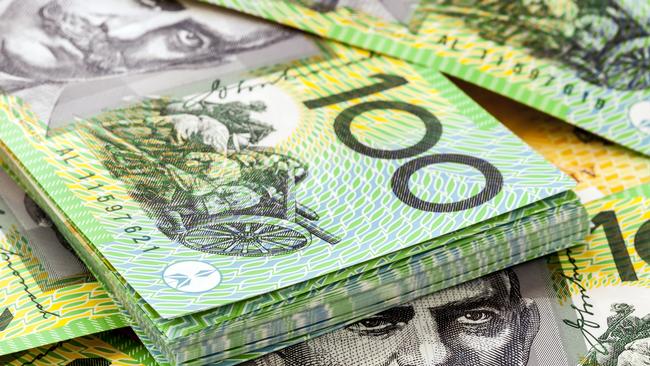Are you wealthy and in what ways?
If your total household wealth is close to $600,000, you are richer than around 50 per cent of the population. See how you measure up.

Saver HQ
Don't miss out on the headlines from Saver HQ. Followed categories will be added to My News.
Brace yourself. Today’s column is going to get deep.
I’ve spent two decades writing about personal finance and still get confounded by one key question: what is true wealth?
Dictionary definitions go on about wealth being an abundance of assets, a great store of money, net worth, amassing resources, blah, blah, blah.
But that feels a little artificial, because wealth is more than just money.
So I asked my mate ChatGPT. I said “Hi Chat, what is true wealth?” and Chat slapped some wisdom on me. Wealth goes beyond financial status, Chat says, and includes health, relationships, purpose, freedom, time, personal growth and gratitude.
Who would have thought that AI appears to have a bigger grasp of wealth than most dictionaries?
It’s easy to measure wealth in numbers. If you’ve got about a million bucks of total household net worth including your home’s value (minus mortgage debt), superannuation and other assets, you’re bang on the Aussie average, according to the Australian Bureau of Statistics.
Median household wealth is much lower, closer to $600,000, so if that’s your total household wealth it means you are richer than around 50 per cent of the population.
Globally, Aussies are among the richest financially.
Income-wise, an Aussie couple both earning slightly above an average Aussie wage will find themselves among the world’s richest 1 per cent of households. And almost 90 per cent of the world’s population have less than $100,000 to their name.
The world’s financial wealth scale ranges from poor homeless people without a dollar to their name right up to the world’s richest person, Elon Musk and his $US248bn ($370bn) net worth.
However, plenty of people with money and assets are technically less wealthy than the homeless person, either because they owe more than they own by living on credit, or because money isn’t everything and their health, relationship, attitude to life or another factor is a disaster.
My mate Chat offered this sage advice: “Without good health, material wealth often loses its significance”. Deep.
Health and wealth are similar in that many people ignore theirs until it’s too late, yet they are probably the two most important factors driving achievement and success. Both can improve – or deteriorate – over time and it’s usually small positive steps that create the healthiest and wealthiest people.
That can mean setting aside money for saving and investing every pay packet, cutting back on unnecessary spending or educating yourself about investing. Almost-identical strategies work for health – exercising every day, cutting back on crappy food and educating yourself about living a longer and healthier life.
Wealth and health are intertwined, because richer people can afford better medical and dental care, avoid public hospital waiting lists, and pay for preventive treatment, check-ups, fitness training, motivation and more.

Relationships are trickier, and they can potentially damage both your health and your wealth. But relationships also benefit from wealth, because people with money are often seen as more desirable potential partners. Shallow, you may say, but true.
Wealth and health give people freedom to live the life they want, set and achieve personal goals, and not have to worry so much.
However, some people may have money, health and a relationship, but still possess a poor attitude and lack of gratitude.
This means that true wealth remains elusive for them.
Financial wealth gives us choices, but we have to work on it continually, and then make the choice to turn our money into true wealth.
More Coverage
Originally published as Are you wealthy and in what ways?





